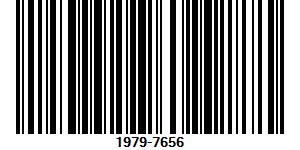Membangun Aplikasi Augmented Reality Berbasis Android di Museum Sudirman Magelang
DOI:
https://doi.org/10.30989/teknomatika.v13i2.1094Keywords:
Augmented Reality, Museum, Museum Sudirman, WaterfallAbstract
A museum is an institution intended for the general public. One of them is the Sudirman Museum, which is located at Magelang City, Central Java. This museum contains relics of General Sudirman that were used during his war. Each museum has different rules in terms of the interaction between visitors and objects on display in the museum. Sudirman Museum is one of the museums that do not allow not to touch objects directly and display information incomplete on each item in the collection. This study aims to overcome the limitations of interaction between museum visitors and objects on display in the museum. This study develops a mobile application based on an operating system based on Augmented Reality that can add to the attraction of the Sudirman museum for visitors so that it is expected to attract visitors to the museum. The results of this research are in the form of an Android application that simulates the contents of the museum and its information through a 2D display on a cellphone screen. In this way, visitors are expected to experience the experience of being in the museum through Augmented Reality. This Augmented Reality-based Android application is designed using the waterfall method and is made using the Unity3D, Vuforia SDK, and Blender applications
References
[2] Unity, “Unity,” 2015. https://unity.com/ (accessed Jul. 27, 2020).
[3] Vuforia, “Vuforia,” 2014. https://developer.vuforia.com/ (accessed Jul. 27, 2020).
[4] E. Ardhianto, W. Hadikurniawati, and E. Winarno, “Augmented reality objek 3 dimensi dengan perangkat artoolkit dan blender,” Dinamik, vol. 17, no. 2, 2012.
[5] K. C. Brata, A. H. Brata, and Y. A. Pramana, “Pengembangan aplikasi mobile augmented reality untuk mendukung pengenalan koleksi museum,” Jurnal Teknologi Informasi dan Ilmu Komputer (JTIIK), vol. 5, no. 3, pp. 347–352, 2018.
[6] A. SETIAWAN, “APLIKASI PENGENALAN BENTUK PULAU DI INDONESIA MENGGUNAKAN METODE DISCRETE COSINE TRANSFORM UNTUK EVALUASI BELAJAR ANAK STUDI KASUS DI SDN MOJOROTO 4 KOTA KEDIRI”.
[7] S. Syahrir, K. Naim, and R. Kamil, “Implementasi Augmented Reality pada Museum La Galigo,” INTEK: Jurnal Penelitian, vol. 5, no. 2, pp. 80–87, 2018.
[8] Yurindra, SOFTWARE ENGINEERING, 1st ed., vol. 1. Yogyakarta: Deepublish, 2017.
[9] R. Habibi and A. Suryansah, Aplikasi prediksi jumlah kebutuhan perusahaan, vol. 1. Kreatif, 2020.
[10] L. Sitorus, Algoritma dan pemrograman. Penerbit Andi, 2015.










